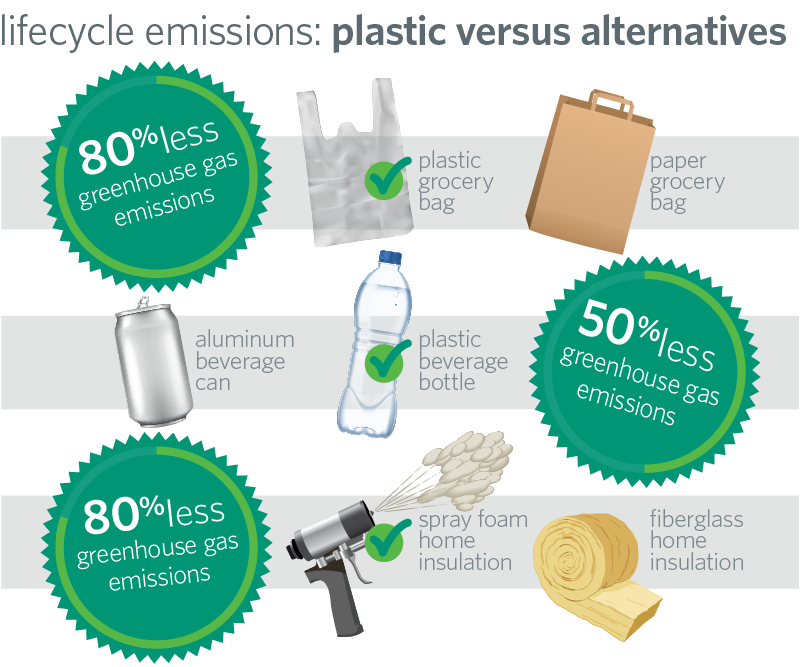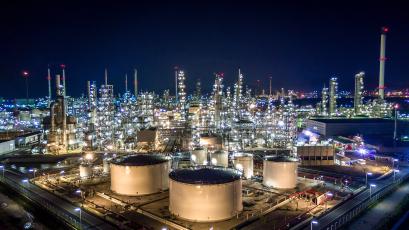More often than not, when we hear about plastic, it’s about mismanaged plastic waste that ends up in the environment. And while that is a critical issue that the fuel and petrochemical industries are actively working to address, there’s another incredibly important role for plastics that isn’t often discussed: plastics are really good at reducing greenhouse gas (GHG) emissions.
Recently, McKinsey & Company released a new report outlining the emissions profiles of plastic vs. non-plastic alternatives in multiple use cases. They found that in nearly every case examined, plastics are responsible for less greenhouse gas (GHG) emissions throughout their lifecycle than alternative materials.

Some other noteworthy facts from the report:
- Generally speaking, plastic requires less energy to produce and is more weight-efficient than alternatives like paper. (Basically, it takes much less plastic to hold the same volume of goods than paper or cloth bags).
- Metal cans that hold food are responsible for three times more GHG emissions than plastic food pouches.
- Plastic water pipes are responsible for 25 percent lower GHG emissions than copper.
- Polyester fabric has a smaller environmental footprint than cotton. The production process is less resource and emissions intensive.
We need to utilize all available technologies to make progress towards environmental goals, and plastics are a valuable tool for lowering emissions and reducing our impact on the climate.
The American Fuel & Petrochemical Manufacturers (AFPM) is the leading trade association representing the makers of the fuels that keep us moving, the petrochemicals that are the essential building blocks for modern life, and the midstream companies that get our feedstocks and products where they need to go. We make the products that make life better, safer and more sustainable — we make progress.


